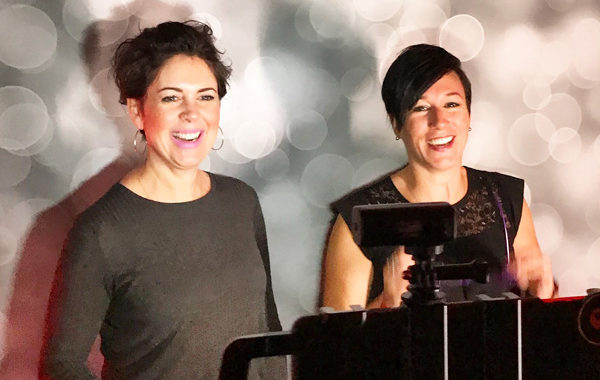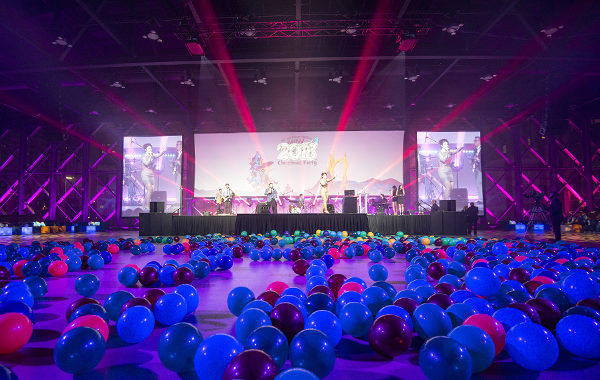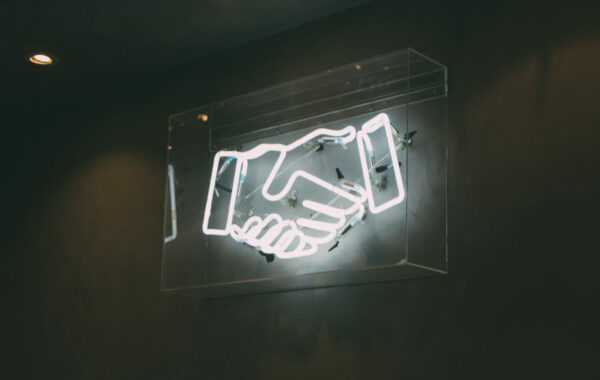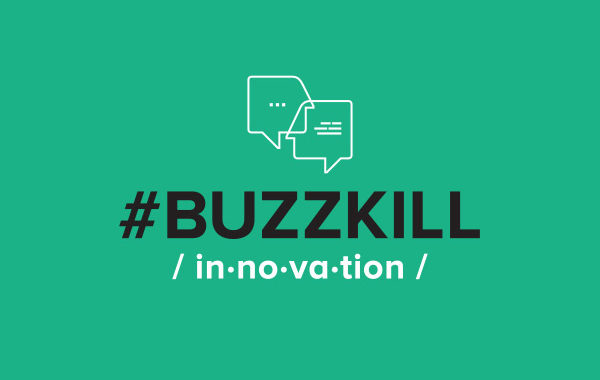In a time when we have instant access to everything from global news headlines to in-depth thought pieces to truly ridiculous memes, how should industry organizations be adapting, adjusting, and keeping pace? Are these organizations still relevant in an all-online-all-the-time world? Today our Managing Partner, Dustin Westling, CSEP, was officially sworn in as a Director on the International Board of Governors for the International Live Events Association (ILEA), and the occasion has us thinking a lot about these questions and our own reasons for continuing to be active in these organizations. Here’s a look at how Dustin will be approaching his time on the ILEA Board, why he thinks there’s still a very real, very relevant place for IRL community, and why YOU are the most important thing that could happen to ILEA (or any organization) today.
In a time when we are each shown our own versions of the facts, it’s incredibly important that we come together to discuss, maybe disagree, and ultimately move forward together.
In so many ways, the astounding access to information that we have today is great – incredible, actually – and we’re absolutely on board with embracing all the potential that digital platforms offer the events industry (and every industry). But it’s true that having so much information at our fingertips has certainly changed what organizations like ILEA offer to members.
“The value you would have gotten from these organizations 10, 15, or 20 years ago has changed,” Dustin says. “You no longer need to get together to learn – you can just use the internet.”
This anything/anywhere/anytime information stream is valuable, but it doesn’t negate the need for face-to-face industry interactions – in fact, we’d argue that it amplifies that need.
Access to more information than any human could consume in a lifetime has come with a catch. Companies like Google, YouTube, and Facebook have built their business models around keeping you happy, all in an effort to keep you scrolling/clicking/watching. Algorithms designed to do this have a fatal flaw – while they will keep you watching knitting videos until the end of time if that’s your jam, the same rabbit hole effect applies to more serious topics. The information that you see online is tailored to you, while the information that your 14-year-old nephew or 68-year-old parent or the guy who lives down the street sees will be tailored to their own browser histories. We’re all seeing a version of the facts that fits in with what we already think, believe, feel, or want to be true. As a result, we seem to be increasingly divided and isolated.
Dustin has been deep-diving into this topic recently through David Weinburger’s very fascinating book, Too Big to Know: Rethinking Knowledge Now that the Facts aren’t the Facts, Experts are Everywhere, and the Smartest Person in the Room is the Room.
“Information has changed, the amount of information you can access has exploded, and every opinion can be backed up now by Google,” Dustin summarizes, adding that, “this plays into where organizations like ILEA are at now. It’s up to us to figure out what our next value proposition is – not to fight the shift, but to reinforce why face-to-face connections still matter while we embrace digital.”
So why do they matter in this context? We’d argue that while we can – and should – access information on our own, coming together face-to-face is a great way to limit the polarizing effect that seems to be resulting from the algorithm-controlled platforms we’re using. We need to meet the real humans behind opposing opinions. We need to remember how to discuss important topics, how to disagree with respect and thoughtfulness, and how to ultimately live and work side by side, pushing our industries, our communities, and our culture forward instead of living in bubbles where we are always right and where we lash out from behind a screen when challenged.
You get what you give, and if you’re doing it right, you’ll find you never give more than you get.
Brené Brown’s Dare to Lead is another recent read that is playing into Dustin’s approach to this new Board seat. In this book, Brown’s research on topics like shame, fear, courage, and vulnerability are applied to leadership and workplace culture, and it’s a refreshing, if challenging, approach.
One of the main points Brown makes is that “courage is contagious.” When you’re brave enough to show up, speak up, participate, and lead – not from a place of arrogance or defensiveness, but with a genuine desire to be part of the solution – big things can start to happen.
“I have benefited so much from being an ILEA member,” Dustin shares. “There is so much there that benefits my business, and benefits me on a personal level. I am constantly trying to make sure that I give as much as I get.”
But – and here’s the catch – you can’t just walk in and expect that result.
“Like everything in life you have to work hard for it, you have to respect it, you have to give it the time, energy, and resources it deserves and trust in the payback,” says Dustin. “Now more than ever, these types of organizations need people who will fight hard for them, who will serve the organization as much as the organization serves them, who will bring people in and encourage others to find success within the organization.”
Ultimately, the success of an organization and the value to its members is not all on a Board of individuals – it needs to be a community effort. As a member, be vocal about what you need in your professional and personal life. Be active, engaged, and above all, courageous. The results will blow you away.
More than any other industry, we have a responsibility to support organizations that exist to create real-life connections.
As event professionals, we work each and every day to create live experiences. We spend our time and use our creativity to create spaces and moments for people to connect with one another. So when we don’t make these organizations a priority and take a solely digital approach to community, connections, and network-building, it has to be said that we’re doing our industry a disservice.
We’re not discounting online groups, forums, and networks – there is absolutely a place for these things. The challenge is to integrate the digital while fighting for and supporting in-person communities as well. Beyond the professional advantages, these organizations are an opportunity for us to build a truly personal network of people who will bring much more to our lives than the chance to make a sale or sign a contract.
“Through ILEA, I’ve built a global community,” Dustin says, “and I have this network I can really lean on, learn from, and connect with, whether about business or about life.”
And ILEA isn’t the only place to build this kind of community. “There are a lot of other important organizations as well. If one doesn’t feel right, explore other options!” Dustin encourages.
If organizations like ILEA are going to succeed in the next generation, we need to think about people on a personal level.
The lines between our personal and professional lives are more blurred than ever, and our organizations need to acknowledge the shift, embrace and integrate the digital opportunities that are out there, and find ways to blend the personal and professional. And while leadership is important, it’s up to all of us to make it happen.
If you have thoughts on the topic, we want to hear them! Hit us up on Facebook or Instagram to add your voice to the conversation – better yet, find us in person at the next industry event.
Photo credit:
Burnett Photography




